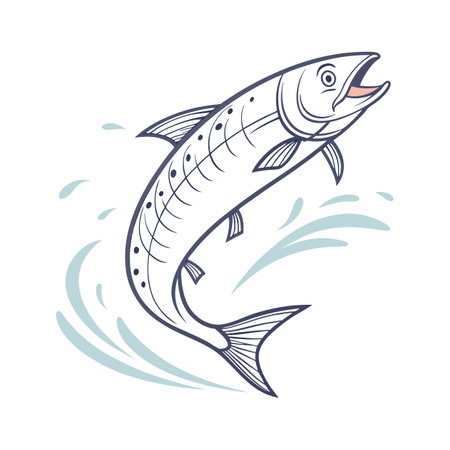Introduction to Fishing as a Tourist in the UK
Fishing has long been woven into the fabric of British life, making the United Kingdom one of Europe’s top destinations for angling enthusiasts. From the tranquil rivers of the English countryside to rugged Scottish lochs and bustling coastal towns, the UK offers a rich variety of fishing experiences for visitors. Whether you’re interested in coarse fishing for carp and barbel, fly fishing for trout and salmon, or sea angling along dramatic coastlines, there’s something for every skill level and interest. The appeal extends beyond just catching fish—the UK’s picturesque landscapes, historic waterways, and vibrant local fishing communities provide an immersive cultural experience for international tourists. As such, many travellers are drawn to the UK not only for its diverse angling opportunities but also for the chance to enjoy its natural beauty and traditional charm.
Understanding Rod Licence Requirements
If you’re planning to fish as a tourist in the UK, it’s essential to understand the legal requirements before casting your line. The cornerstone of recreational freshwater fishing in England and Wales is the rod licence—a legal document issued by the Environment Agency. A rod licence gives anglers the right to use a fishing rod or pole for catching freshwater fish, such as carp, trout, and pike, on rivers, lakes, and canals. Without this licence, even tourists face fines or prosecution.
What Is a Rod Licence?
A rod licence is an official permit required by law for anyone wishing to fish for freshwater species using a rod and line. This applies whether you are fishing for pleasure or as part of a competition. It covers most inland waters across England and Wales but does not usually apply to sea fishing off the coast or estuaries.
Why Is a Rod Licence Necessary?
The primary purpose of the rod licence is to support sustainable fishing practices and protect aquatic habitats. The funds raised from licences contribute directly to conservation projects, fish stocking, habitat improvement, fisheries enforcement, and education programmes. Having a regulated system also helps monitor fish populations and prevent illegal activities such as poaching.
The Legal Framework
The requirement for a rod licence is set out under the Salmon and Freshwater Fisheries Act 1975 and subsequent amendments. Enforcement officers have the authority to check anglers’ licences at any time. If caught fishing without a valid licence, penalties can reach up to £2,500. Note that a rod licence is separate from permission to access private waters—most waters are managed by angling clubs or fisheries that may charge additional fees.
Rod Licence Coverage Summary
| Region | Rod Licence Required | Governing Authority |
|---|---|---|
| England & Wales | Yes | Environment Agency |
| Scotland | No (except salmon/sea trout) | Local District Boards |
| Northern Ireland | Yes (separate system) | DAERA & Loughs Agency |

3. Who Needs a Rod Licence?
If you are planning to fish in the UK as a tourist, understanding who needs a rod licence is essential to ensure you comply with local laws. A rod licence is required for anyone fishing for salmon, trout, freshwater fish or eels with a rod and line on rivers, streams, canals, and most stillwaters in England and Wales. This regulation applies regardless of whether you are a resident or a visitor.
Age Requirements
There are specific age-related rules for rod licences. In England and Wales, anglers under 13 years old do not need a licence. Those aged 13 to 16 must obtain a junior licence, which is free but still mandatory. Anglers aged 17 and over must purchase an adult licence. The rules can differ slightly in Scotland and Northern Ireland, so it’s important to check local guidelines if you plan to fish there.
Tourists Versus Residents
The key point for tourists is that the requirement for a rod licence applies equally to visitors and residents. There is no exemption for non-UK nationals or tourists; everyone must have the appropriate licence before fishing, except in privately managed fisheries where the owner may have arranged an overarching permit system (always check before fishing).
Exemptions
Certain exemptions do exist, but they are limited. For example, fishing within private property lakes that do not connect to public waterways may not require an Environment Agency rod licence, though local permits may still apply. Additionally, sea fishing from the shore does not generally require a rod licence anywhere in the UK. However, if you are fishing in tidal rivers or estuaries where both freshwater and saltwater species are present, it’s best to confirm the specific requirements for your location.
Quick Recap for Visitors
To summarise: if you’re visiting the UK and wish to fish inland waters for salmon, trout or coarse fish using a rod and line, you will almost certainly need a rod licence regardless of your nationality or length of stay. Always check the exact rules for your chosen location and type of fishing to avoid fines or confiscation of your equipment.
4. Purchasing a Rod Licence as a Visitor
Securing a rod licence is a crucial step before you cast your line in the UK, and the process is quite straightforward for tourists. Below, you’ll find a detailed, step-by-step guide to help you apply for and obtain your rod licence with ease, whether you choose to purchase online or in-person.
Step-by-Step Guide: How Tourists Can Obtain a Rod Licence
Step 1: Decide the Type of Licence You Need
The type of rod licence required depends on the species you wish to fish for (coarse fish, trout, or salmon) and the duration of your visit. Licences are available for 1 day, 8 days, or 12 months.
| Licence Type | Duration | Covers |
|---|---|---|
| Trout & Coarse Fish | 1 day / 8 days / 12 months | Most freshwater species except salmon & sea trout |
| Salmon & Sea Trout | 1 day / 8 days / 12 months | All freshwater species including salmon & sea trout |
Step 2: Choose How to Apply – Online or In-Person
- Online: The quickest and most convenient way. Visit the official GOV.UK fishing licence portal.
- In-Person: Purchase at local Post Office branches across England and Wales. This can be handy if you’re already out exploring the area.
Step 3: Prepare Your Details and Payment Method
You’ll need a valid passport or ID and an address where you’re staying in the UK (hotel address is acceptable). Have a credit/debit card ready for payment.
Step 4: Complete Your Application
If applying online:
- Select your preferred licence type and duration.
- Fill in your personal details and temporary UK address.
- Make payment securely through the website.
- Your rod licence confirmation will be sent via email – print it out or keep it on your phone as proof while fishing.
If applying at a Post Office:
- Ask staff for a rod licence application form.
- Select the appropriate type and duration.
- Provide your details and pay at the counter.
- You’ll receive a paper licence immediately, which you must carry when fishing.
Step 5: Know the Costs (2024)
| Licence Type | 1 Day | 8 Days | 12 Months* |
|---|---|---|---|
| Trout & Coarse Fish (Adult) | £6.60 | £13.20 | £33.00 |
| Salmon & Sea Trout (Adult) | £13.60 | £28.30 | £86.10 |
| Youth (13–16 years) | Free (but registration required) | ||
*Prices may change annually; check GOV.UK for updates.
Quick Tips for Tourists:
- You do not need a UK bank account – international cards are accepted online and at Post Offices.
- The rod licence is only valid in England and Wales; Scotland has different regulations, so check locally if travelling north of the border.
- You must always have your licence with you while fishing – digital or paper copies are both accepted by enforcement officers.
By following these steps, visitors can enjoy legal and hassle-free fishing throughout their stay in the UK, making the most of Britain’s renowned rivers and lakes.
5. Types of Fishing Permitted and Local Customs
When fishing as a tourist in the UK, understanding the types of fishing allowed under your rod licence is crucial. The standard rod licence typically covers coarse fishing, trout fishing, and salmon fishing, but there are distinct differences between each type. Coarse fishing refers to angling for freshwater species other than salmon and trout, such as carp, bream, and pike. Trout and salmon fishing often require additional permits or endorsements beyond the standard licence, especially in premium rivers or private beats.
Regional Preferences and Unique UK Styles
The UK boasts a rich variety of regional fishing traditions. For example, fly-fishing for trout is particularly popular in Scotland and along the chalk streams of southern England, while coarse fishing is favoured across much of England’s rivers and lakes. In Wales, both river and sea trout (sewin) are sought after by local anglers. Each region may have its own rules about tackle, bait, and closed seasons, so it is essential to check with local fisheries or angling clubs before you cast your line.
Local Etiquette Every Visitor Should Know
British anglers take etiquette seriously. Always seek permission before accessing private waters—trespassing is frowned upon and can result in fines or being asked to leave. On public waters, respect personal space by maintaining a reasonable distance from fellow anglers. Keep noise to a minimum, avoid littering, and release fish carefully if practising catch-and-release.
Embracing UK-Specific Fishing Practices
The UK has unique practices such as “match fishing” competitions on canals or lakes where anglers compete to catch the most fish by weight within a time limit. Night fishing for carp is another popular pursuit but may be restricted in some areas—always verify local regulations. Finally, many UK fisheries expect visitors to use unhooking mats and barbless hooks to protect fish welfare, reflecting the nation’s strong conservation ethos.
6. Compliance and Penalties
Adhering to rod licence regulations is a crucial part of enjoying fishing as a tourist in the UK. The UK government takes fishing laws seriously to protect aquatic environments and ensure fair access for all anglers. As a visitor, it is your responsibility to make sure you hold a valid rod licence before casting your line, regardless of whether you are fishing on a day trip or during a longer holiday.
Failure to comply with these requirements can result in significant penalties. If you are caught fishing without a valid rod licence, you could face an on-the-spot fine of up to £2,500. Enforcement officers from the Environment Agency regularly patrol popular fishing spots and have the authority to request proof of your licence at any time. They also conduct undercover checks, so attempting to fish without a licence carries considerable risk.
Enforcement procedures are robust and apply equally to both residents and international visitors. If you are found fishing illegally, officers will take your details and may issue an immediate penalty notice. In some cases, your equipment may be seized, and you could be summoned to court for more serious offences. Its important to remember that ignorance of the law is not considered an acceptable excuse, even for tourists.
To avoid complications and ensure your fishing experience remains enjoyable, always purchase the correct rod licence beforehand and carry it with you when fishing. Not only does this demonstrate respect for local regulations and wildlife conservation efforts, but it also protects you from unnecessary legal trouble during your visit.
7. Practical Tips for Fishing Tourists
Pack the Right Kit
When fishing in the UK, having the right gear makes all the difference. Most UK waters require specific tackle depending on your target species and location. Essentials include a collapsible rod (for easy travel), a sturdy landing net, barbless hooks (often required for catch-and-release), and appropriate bait or lures. Don’t forget waterproof clothing – the British weather can be unpredictable!
Safety First
UK rivers and lakes can be deceptively deep and fast-moving. Always wear a life jacket when fishing from a boat or near strong currents. Let someone know your plans, especially if you’re heading out alone, and check local weather forecasts before setting out. Be mindful of slippery banks and keep your mobile fully charged for emergencies.
Time Your Trip Wisely
Fishing seasons in the UK vary by region and species. For example, coarse fishing is generally allowed year-round on most stillwaters, but there’s a close season (15 March to 15 June) for rivers in England. Salmon and trout have their own closed periods, so always check with local authorities or fisheries before planning your trip.
Respect Local Regulations and Customs
A valid rod licence is just the start – many waters also require day tickets or club memberships. Always carry proof of your licence and any permits while fishing. Respect private property, stick to public footpaths, and avoid disturbing wildlife or littering. British anglers take pride in their etiquette: greet fellow fishers politely, keep noise to a minimum, and follow local catch-and-release guidelines.
Embrace the Culture
Fishing in the UK isn’t just about catching fish; it’s about enjoying tranquil landscapes and centuries-old traditions. Try chatting with local anglers – they often share tips and stories that can enrich your experience. Take time to visit historic pubs after your session for a true taste of British hospitality.
Summary Checklist
- Get your Environment Agency rod licence and any extra permits.
- Bring weather-appropriate clothing and essential gear.
- Stay safe around water at all times.
- Research local rules, seasons, and customs before fishing.
- Show respect for nature, property, and other anglers.
By following these practical tips, you’ll not only stay on the right side of UK laws but also maximise your enjoyment of this rich angling tradition.


